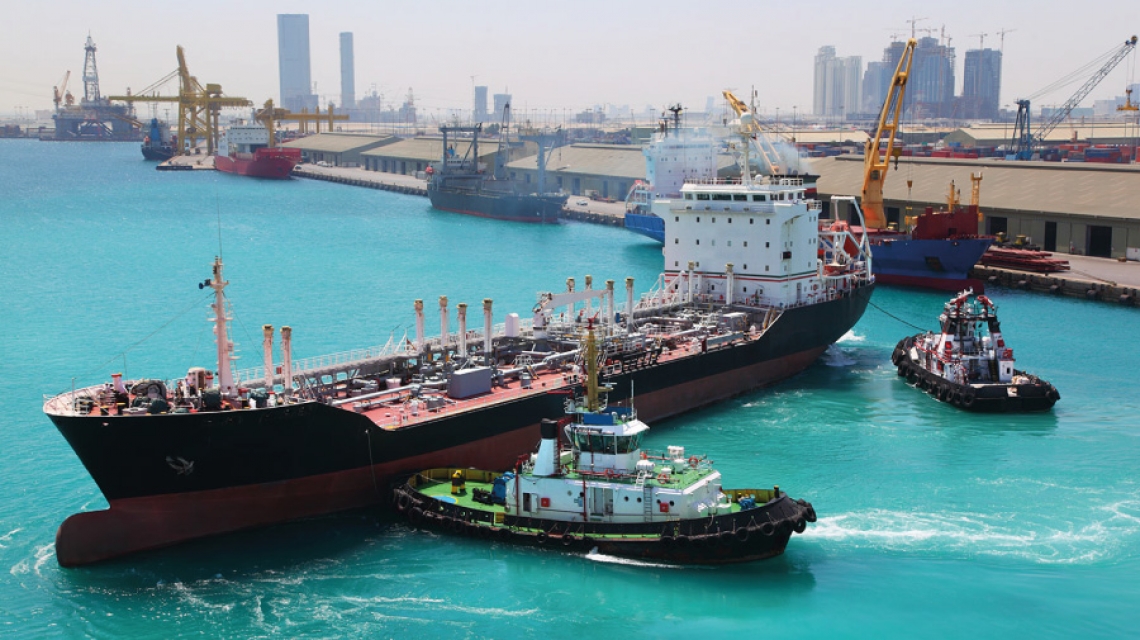
Abu Dhabi-UAE: 27 May, 2014 –The Institute Center for Smart and Sustainable Systems (iSmart) at Masdar Institute of Science and Technology has advanced several research projects in collaboration with Abu Dhabi partners to meet the economic aspirations of the emirate.
The center, which was launched early this year, recently signed a research agreement with the Abu Dhabi Ports Company to optimize operations at Mina Zayed Port, which can help contribute to Abu Dhabi’s efforts to position itself as a leading global port and diversify its economy.
Dr. Fred Moavenzadeh, President, Masdar Institute, said: “The growing relevance of smart systems infrastructure in today’s world makes research in this area highly essential. The support of the UAE leadership continues to guide us and encourage our researchers to seek productive solutions, as witnessed by the number of research papers. We hope faculty and students associated with iSmart will continue to undertake cutting-edge research for the benefit of humanity in general.”
iSmart is also working with the International Renewable Energy Agency (IRENA) and the UAE Ministry of Foreign Affairs’ Department of Energy and Climate Change (DECC) to develop scenarios and models supportive of realizing a renewable energy vision for Abu Dhabi, which can play a significant role in helping the emirate achieve its economic and development goals. iSmart is also leading collaborative research with the Abu Dhabi Department of Transport to understand how electric vehicles and wider adoption of public transportation canreduce carbon emissions and promote sustainable transport in Abu Dhabi. New areas of iSmart research will begin this fall, when Masdar Institute launches its Sustainable Critical Infrastructure Master’s program, with the aim of providing graduates, research and intellectual property that will contribute to the sustainability of Abu Dhabi’s development efforts.
In addition to these activities, research is ongoing iSmart in areas ranging from machine learning and neural network algorithms to biofuels, smart grids and energy policy, with multiple peer-reviewed papers published since the center’s launch.
Dr. Sgouris Sgouridis, Associate Professor, Engineering Systems and Management, and Head of iSmart, said: “At this point, our aim is to strengthen our capabilities and so that the UAE government and private sector organizations will entrust our research teams with their medium and longer-term needs. Organizations like Abu Dhabi Ports Company and the Ministry of Foreign Affairs have already awarded significant projects.”
iSmart is mandated to apply systems analysis techniques in the design and development of sustainable infrastructure systems that interface between technology and society. Since its launch, the center has been active and recently hosted a symposium on sustainable critical infrastructure with significant industry participation, where the new Master’s program in sustainable critical infrastructure was launched, taking the total number of Master’s programs currently offered at Masdar Institute to nine.
Dr. Sgouridis explained: “We intend to create a strong core of students before scaling up activities. What we are looking for now is a small group of dedicated and engaged students, willing to put extra effort to build up our course and research portfolio with their support.”
One of the graduating students associated with iSmart is Reem Ketait, of the Engineering Systems and Management program, who has been working under Dr. Toufic Mezher, Professor. Her research focuses on the ‘Formulation of an integrated energy strategy for Abu Dhabi based on a holistic optimization of the country’s electricity sector’.
Ketait said: “I plan to seek the next challenge and allow the knowledge I have acquired from Masdar Institute to fuel my curiosity and propel me to contribute to making the UAE’s sustainability goals a reality.”
Through such research initiatives, iSmart aims to facilitate faculty and student research in the envisioning, design, and analysis of sustainable infrastructure transformation on the urban and regional scale integrating socioeconomic, technical, and policy-oriented perspectives.
As iSmart expands its activities, it will be participating in workshops and exploring project collaborations with some of the leading global corporate brands like GE and Siemens. The center will also be also hosting events on smart cities and smart infrastructure in collaboration with leading institutions such as the INCONET-GCC, a science and technology international cooperation network for Gulf Cooperation Council countries aiming at the promotion of bi-regional dialogue. The center is also in talks with the Institute of Electrical and Electronics Engineers (IEEE) to host another event on sustainable cities.